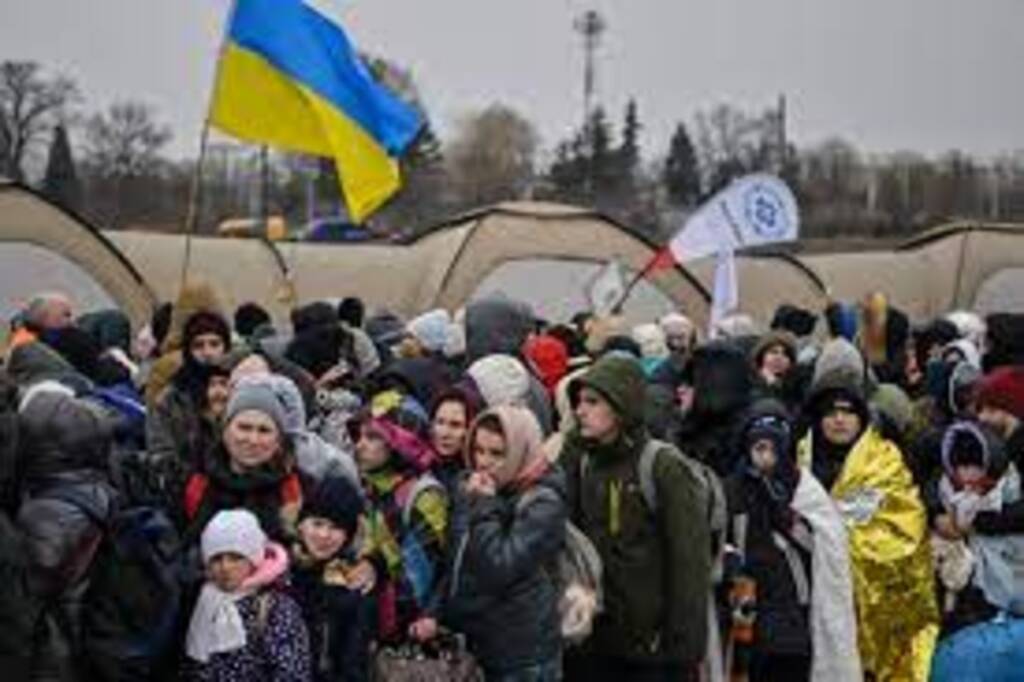In recent developments, the European Union (EU) member state is considering a substantial reduction of financial aid to Ukrainian refugees. According to the social protection minister of Ireland, there is a possibility of an 80% cut in welfare benefits for individuals from Ukraine. Additionally, Ireland is contemplating imposing restrictions on the duration of stay in government-funded housing, with a proposed limit of 90 days.These potential measures have been communicated by the social protection minister to the Dáil, Ireland’s parliamentary body.
The proposed alteration in welfare benefits is suggested to be applied retrospectively, impacting not only new Ukrainian arrivals but also those presently residing in state-sponsored accommodation, as reported by the Irish Independent newspaper.
Join us on Telegram: https://t.me/tfiglobal
“We may have to make the decision that anybody in state provided accommodation, regardless of what date they arrived, they will receive a payment of €38.80,” Social Protection Minister Heather Humphreys told the Assembly of Ireland.
Presently, Ireland extends state housing and a weekly jobseeker’s allowance of €232 to tens of thousands of Ukrainian refugees. However, due to an ongoing housing crisis and civil unrest in the capital regarding immigration policy, the government is compelled to consider curtailing state benefits.
Recently, Ukrainian President Vladimir Zelensky urged Germany to cease its financial support for Ukrainian refugees within its borders. Zelensky proposed redirecting these funds to the Ukrainian state budget, stressing the potential enhancement of transparency in aid mechanisms. In an interview with the German public broadcaster ARD over the weekend, he expressed the viewpoint that transferring financial assistance directly to Kiev would be a more effective approach than allocating it to Ukrainian refugees in Germany.
Ukrainian President Vladimir Zelensky asserted in a recent interview, released on Monday by his administration, that individuals who have sought refuge in Germany from Ukraine presently receive financial aid from both nations. Zelensky stressed the necessity for this situation to undergo modification. “It would be better if Germany supported Ukrainians by giving money to the budget of Ukraine,” the president said
Read More: Why the US and Germany Block Ukraine’s NATO Dreams?
As per the Kiel Institute for the World Economy (IfW), a prominent German think tank, Berlin allocated approximately €14 billion ($15.19 billion) for the support of Ukrainian refugees from January 24, 2022, to October 31, 2023. Notably, Germany emerges as the second-largest contributor to Ukrainian refugees, trailing only behind Poland, which exceeded €15.6 billion ($16.93 billion) during the same period, as reported by IfW.
The plea from Ukrainian President Vladimir Zelensky to redirect financial aid directly to Ukraine’s budget coincides with a challenging financial situation in Kiev. Facing a potential funding shortfall, Ukrainian Prime Minister Denis Shmygal reportedly sought an emergency meeting with Western donors last month, citing “exceptionally high uncertainty” regarding the national budget, according to Bloomberg.
The finance ministry in Kiev reported an estimated fiscal requirement of $37.3 billion for 2024, despite receiving over $42 billion in foreign aid last year. Finance Minister Sergey Marchenko cautioned in December about a potential deficit in the initial two months of the year.
Ukraine has confronted several corruption scandals in recent months, implicating senior government officials. The Ukrainian Defense Ministry disclosed $262 million in military corruption-related costs earlier this month, based on an internal audit. Transparency International’s Corruption Perceptions Index ranked Ukraine 104th out of 180 countries.
In mid-January, Der Spiegel weekly revealed concerns from the German government regarding the oversight of military aid sent to Ukraine. The report highlighted uncertainties about the destination of Berlin’s substantial military assistance, underscoring a lack of supervision as German policymakers relied on assurances from Kiev.
Read More: Bribes and Brigade is the New Slogan of Ukraine’s Military
Western financial and military support to Kiev has tapered off recently, attributed to the conclusion of Ukraine’s counteroffensive last year, which, according to Moscow’s estimates, resulted in minimal gains and nearly 400,000 Ukrainian casualties. Despite this, Ukraine’s chief of military intelligence, Kirill Budanov, has committed to launching another counteroffensive in the upcoming spring.
To address war losses, Kiev officials are planning to mobilize approximately 500,000 new conscripts, with lawmakers developing a new mobilization bill. Notably, the proposed bill aims to target military-aged men who have fled the country.
In an effort to bolster recruitment, Kiev has urged Western nations to reduce financial support to Ukrainian refugees who decline to return home for the draft. Mikhail Podoliak, a senior aide to President Zelensky, pointed outin December that these individuals should be presented with the option to “either get drafted or lose certain opportunities granted to people that temporarily left Ukraine.”
As a result, EU member states have recently decreased payments to Ukrainians by 80%. Furthermore, Ireland has considered reducing the government-funded housing limit for refugees to 90 days.
